KATHMANDU: Sometimes, records are made unknowingly. This happened in the life of Phurba Tenjing Sherpa – a proud recipient of two Guinness World Records.
On May 23, 2018, he climbed Mt. Everest with his siblings — Pemba Dorje Sherpa, Dawa Diki Sherpa, Phurba Thinley Sherpa – to set a record of the most number of siblings to ascend Mt. Everest concurrently. Did Phurba know that he was making a record by climbing with his siblings at the same time? “No, I only realized it later that we set a record,” he quips.
Born in 1988 at Rolwaling village in Dolakha, Phurba Tenjing started making a living as a porter at the age of 14. So far, he has guided a total of 23 Nepalis and a sizable foreigners to the peaks.
This young Sherpa also holds the record of ‘Most siblings to have climbed Everest” at different times. Seven out of the 11 offspring from Chhiring Nurbu Sherpa and Kimjung Sherpa have reached atop the Everest.

Interesting! Phurba’s siblings, including Pemba Gyalzen Sherpa, Phurba Thundu Sherpa, Pemba Dorje Sherpa, Nima Gyalzen Sherpa, Dawa Diki Sherpa, Purba Thile Sherpa, and Phurba Tenjing have conquered the Mt. Everest. “Wasn’t that a moment to cherish?” he queries with a broad smile.
Born in 1988 at Rolwaling village in Dolakha, Phurba Tenjing started making a living as a porter at the age of 14. So far, he has guided a total of 23 Nepalis and a sizable foreigners to the peaks.
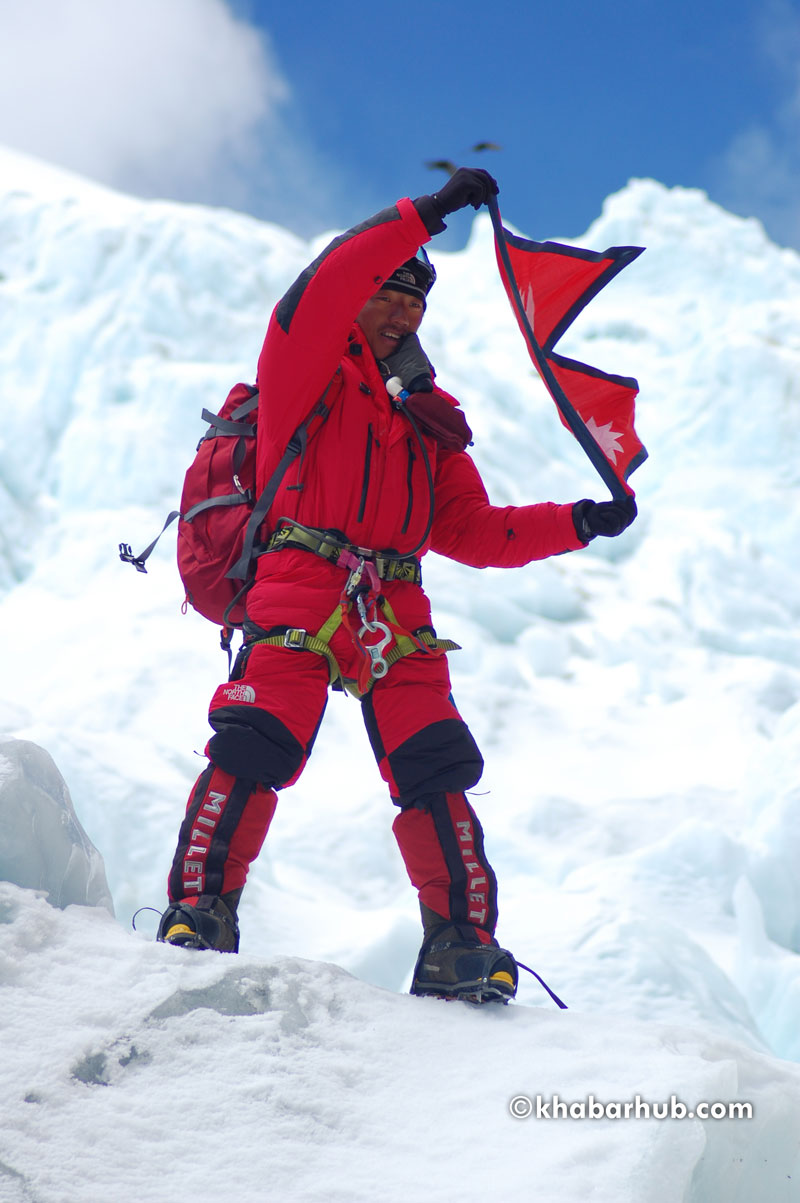
In 2008 and in 2017, this enthusiastic Sherpa ascended the Everest twice in three days. He descended to Camp IV and climbed the peak again.
He reminisces those days when several porters came to the village from the lowlands and failing to cross the Tashi Lepsa Pass (5,750 m) to reach Lukla – a five-day trek — due to high altitude. “I then started working as a porter at a tender age,” he recalls. Barely three years working as a porter he made up his mind to give a try to climb the world’s highest peak. “I was able to gather the confidence, and finally I made it. I climbed the Everest from the Tibetan side with my eldest brother Pemba Dorje Sherpa in 2007,’ he told Khabarhub.
Before this, he made a failed attempt to ascend the Mt. Pumori (7,161 m) at the age of 16 years. “I could not reach the top due to an avalanche,” he recalls.
Sherpa community, he says, respect the mountains as God since they grow up in the lap of the mountains.
“We revere mountains as God like the way we love and respect our mothers,” he said.
Since then, there has been no looking back. “This boosted my morale,” says Phurba.
In 2008 and in 2017, this enthusiastic Sherpa ascended the Everest twice in three days. He descended to Camp IV and climbed the peak again.
He has also conquered Mt. Manaslu thrice. In 2011, he climbed Mt. Ama Dablam within ten days and stayed at the summit for a staggering 10 hours.
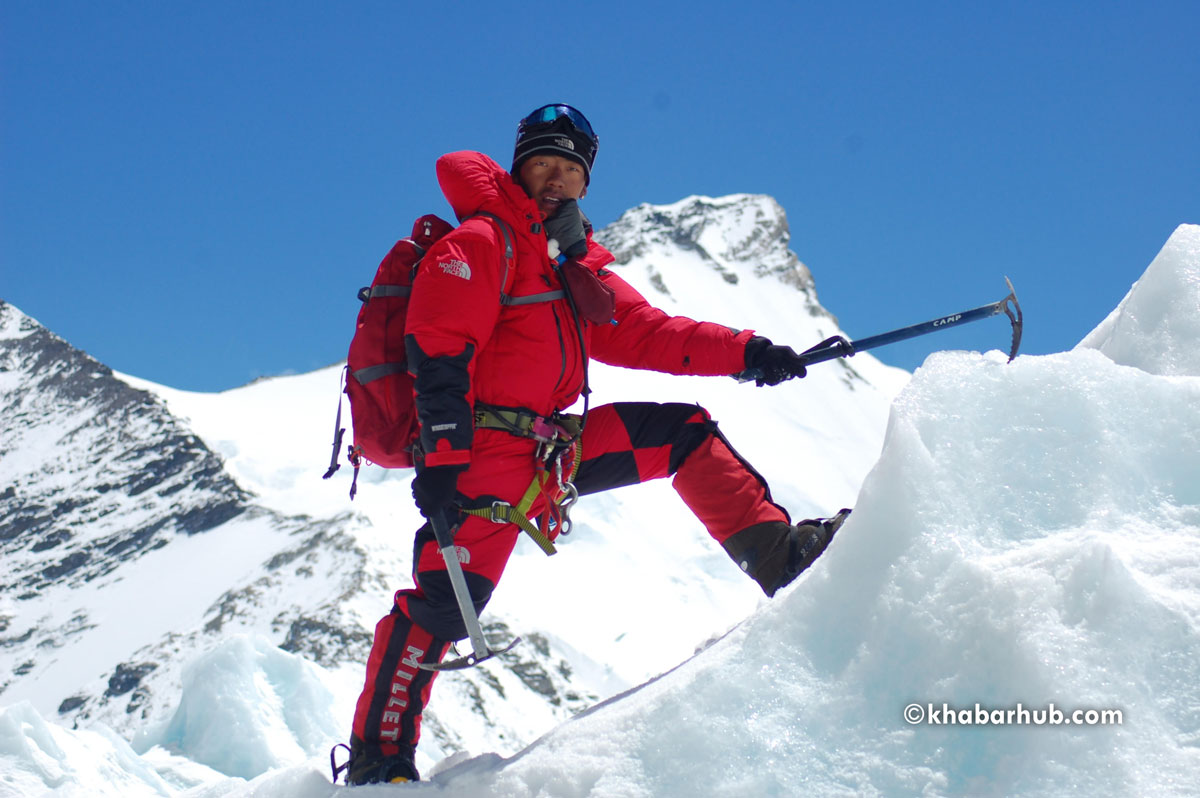
Ask him what did he earn so far, and pat comes the reply: “The positive impression as well as the recommendation of being a hospitable guide and a supportive porter is what I have earned in all these years.”
Sherpa community, he says, respect the mountains as God since they grow up in the lap of the mountains.
“We revere mountains as God like the way we love and respect our mothers,” he said.
Phurba Tenjing, however, is saddened at the way the government has ignored the plights of Sherpa who guide mountaineers to the peak safely. “We feel overlooked,” he laments.
An adage, which he is accustomed to hearing from mountaineers, makes his chest broader. Consider this: “Everest can be conquered without oxygen, but not without the Sherpas.” What could be more heartening than this for Phurba and rest of the Sherpa porters and guides?
He is equally worried over the dwindling number of Sherpas in the mountaineering sector. “Youngsters have started losing interest in mountaineering as they are more options available. They prefer going abroad,” Phurba told Khabarhub.
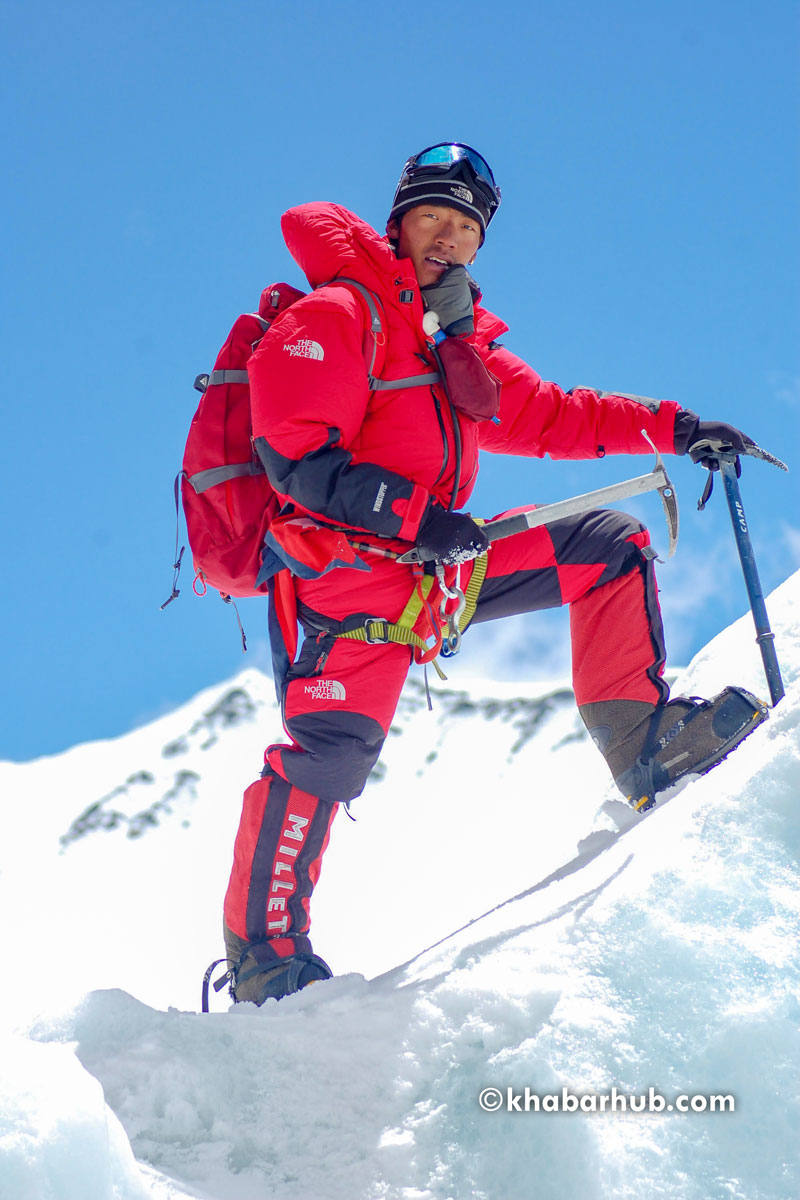
In the course of the conversation, Phurba gives a sad expression while reminiscing a horrific moment when an avalanche hit the Everest in the 2015 devastating earthquake that left him with a fractured backbone. “I never thought that I would survive,” he said adding, “Even now, I get scared while ascending.”
An adage, which he is accustomed to hearing from mountaineers, makes his chest broader. Consider this: “Everest can be conquered without oxygen, but not without the Sherpas.” What could be more heartening than this for Phurba and rest of the Sherpa porters and guides?
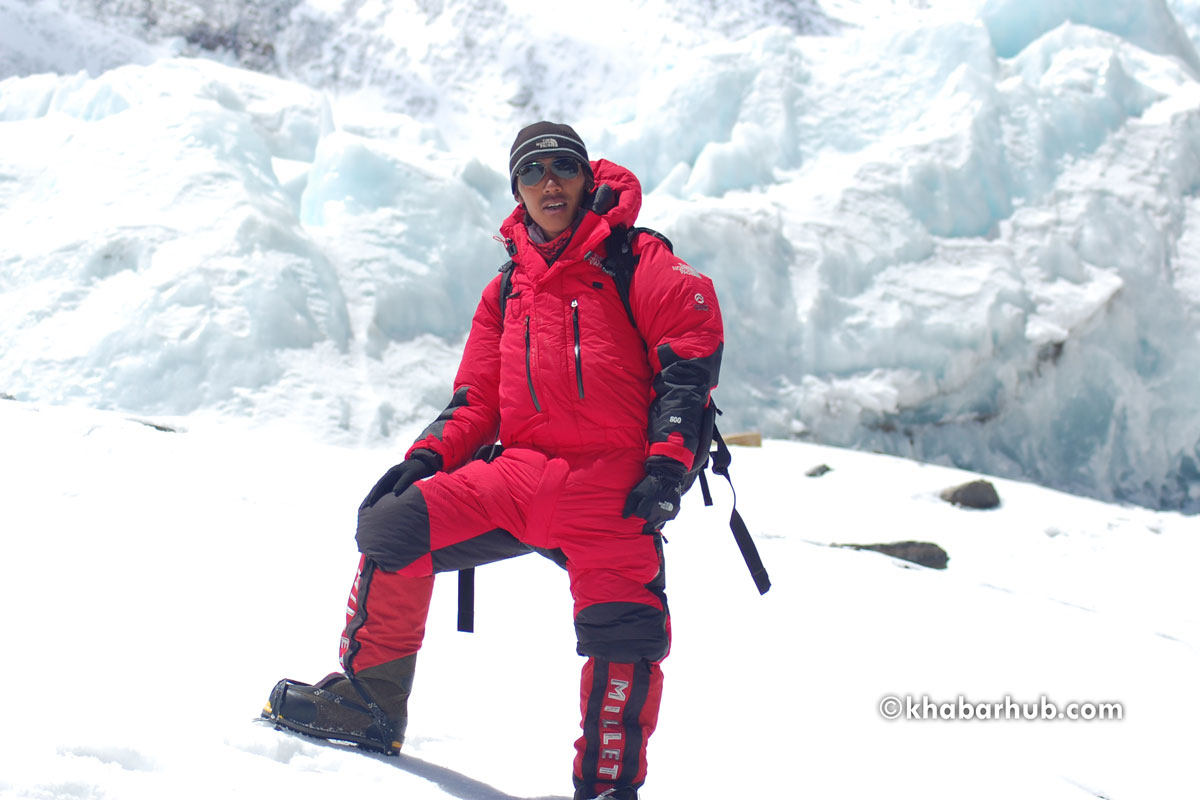
By saying so, he also recalls the moment when he guided Rosha Basnet, a journalist, to the summit. “Rosha appreciated my support,” he says adding, “When God is always with us, why we need to fear?”
(With inputs from Thaneswar Guragai)


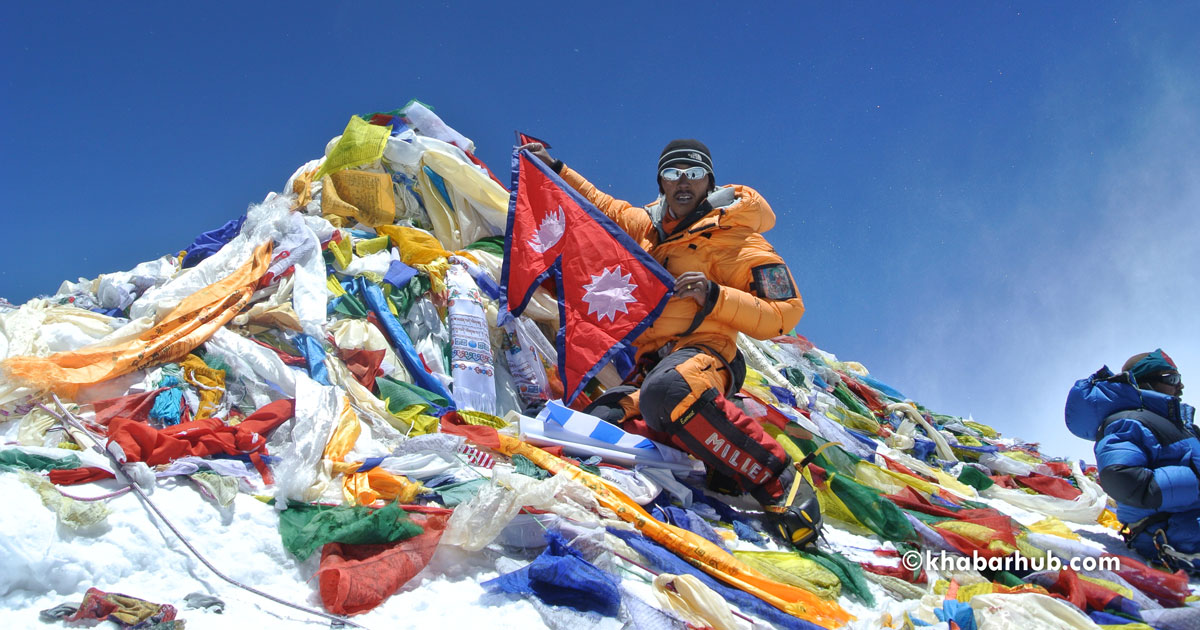
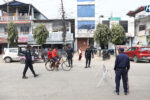
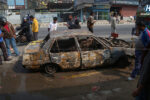




Comment